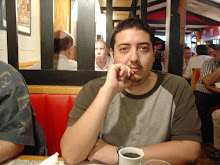

Love Story (1970)
Starring: Ali MacGraw, Ryan O’Neal, Ray Milland
Directed by: Arthur Hiller
Released by: Paramount Pictures
Synopsis: Oliver Barrett IV (Ryan O’Neal) absolutely hates Jennifer Cavalleri (Ali MacGraw), and she can’t stand him either. But underneath all the insults lies a fascination that culminates in a relationship that surpasses all but one obstacle: death.
Review: Out of all the classic romance films I have seen since I started this project I would say that Love Story is the most realistic of them all. There is no war going on in the world, the lovers don’t make a passionate promise on an iconic landmark nor does it take place in an exotic locale. Oliver and Jennifer meet in College, and their relationship starts by absolutely hating each other’s guts (a classic romance film plot element). And because of this, Love Story manages to enthrall in its minimalistic look at love.
In many ways, Love Story could be seen as a hit or miss. Due to how simple the whole story is it might be considered to be slow and boring, lacking some of the melodrama that have turned some romance films into some of the most popular ever made. But on the other hand, Love Story is a lot like watching a real relationship grow into fruition, making it for a far more relatable storyline. This is accomplished in part to the chemistry between the actors. Both Ali MacGraw and Ryan O’ Neal portray their characters in a familiar but never stereotypical manner. Jennifer is the spunky liberal while Oliver is the rich jock, star of the institution’s hockey team. Neither character is taken to extremes, but is still given clear characteristics.
Their relationship even yields one of the most memorable lines in cinema history: “Love means never having to say you’re sorry”. While it’s ultimate meaning could change depending on the person, this phrase symbolizes how much Oliver and Jennifer love each other. It summarizes what they go through in order to keep their love alive despite all the obstacles they have to endure in life.
The Massachusetts setting also lends to the familiarity of the plot, giving us some beautiful summer scenes as well as melancholic winter moments. This helps in giving poignancy to the relationship between Jennifer and Oliver and, once more, lends credibility to the film in providing us with a look at their social backgrounds.
Even the music was simplified for Love Story. Francis Lai only composed one theme for the whole movie and kept re-using it throughout its duration. The power, however, lies in how it is used. The same composition is often altered to fit the mood of the story, whether that feeling is anger or innocent love. It manages to truly move the audience and gives them a reason to care for Oliver and Jennifer.
Love Story proves that sometimes you don’t need a grand setting or a big conflict in order to give us a memorable romance story. It’s traditionalistic values could be a problem for fans used to more elaborate productions, but in the end it’s the love story being told that counts, and Love Story features an unforgettable, if heartbreaking, romance.
Rating: 4 filmstrips out of 5








No hay comentarios:
Publicar un comentario